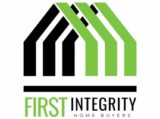Selling your home fast gets a lot trickier when lien issues pop up. Liens are legal claims against your property that have to be dealt with before you can hand over ownership. If you don’t clear them, you risk major delays – or even losing your buyer altogether. Whether it’s unpaid taxes, a contractor bill, or leftover mortgage debt, these claims are a headache for buyers and title companies alike.

What Are Property Liens And How Do They Affect Your Sale Speed?
Knowing what a property lien is and how it can hit you is key for any home seller. A lien on your house can make big roadblocks. It can slow down the sale and hurt how well you do in selling your home.
Defining A Property Lien
A property lien lets a creditor claim some or all of your home if you don’t pay what you owe. These aren’t just against you – they stick to the property title itself.
Common ones? Mortgages, mechanic’s liens (from unpaid contractors), and tax liens for missed property taxes. If you don’t settle up, the creditor could force a sale or block you from refinancing.
Liens show up during a title search and make buyers (and their lenders) extra cautious. Usually, you can’t transfer ownership with an unresolved lien hanging over your head.
Voluntary Vs. Involuntary Liens: What’s The Difference?
There are two flavors of liens:
- Voluntary Liens: You agree to these, like when you sign a mortgage.
- Involuntary Liens: These get slapped on by law or court order – think tax liens or judgment liens.
Voluntary liens are expected; you know what you’re getting into. Involuntary ones? Not so much. They’re usually the result of unpaid bills or legal trouble and can really mess with your sale plans.
Resolving them isn’t always straightforward. Voluntary liens are usually dealt with during the sale, but involuntary ones often mean more paperwork, negotiation, or even legal wrangling – none of which help your timeline.
Common Types Of Liens You Might Encounter Before A Quick Sale
Property liens show up in many ways, each one with its own rules and possible troubles for selling a home. Knowing them will allow you to fix problems early, so they don’t slow things down.
Mortgage Lien (First & Second Mortgages)
Mortgage liens are the usual suspects in home sales. The first mortgage is the main loan you used to buy the place, and the lender gets first dibs if you sell or default. Second mortgages – like home equity loans – come after that.
Both types have to be paid off at closing for a clean title. If your sale price doesn’t cover everything, you might need lender approval for a short sale. Unresolved mortgage liens will stop a sale cold – buyers can’t get title insurance otherwise, so know your payoff numbers ahead of time.
Property Tax & Federal Tax (IRS) Lien
Property tax liens happen when you miss tax payments. Local governments slap these on, and they actually take priority over most other debts, even the mortgage. Ignore them, and you could face tax foreclosure.
IRS liens are similar but come from unpaid federal taxes. These cloud your title too, and you’ll need to pay or negotiate before closing. State and federal tax liens have to be cleared for the sale to go through, so it’s smart to check early – either with a title search or your real estate attorney.
Judgment Lien
A judgment lien comes from a lawsuit – maybe for unpaid debts or breach of contract. If a creditor wins in court, they can stick a lien on your property, which blocks you from selling or refinancing until it’s dealt with.
These liens can stick around for years. You’ll either need to pay them off or negotiate a settlement, and you’ll have to provide documentation showing it’s been released to clear the title. Title searches will flag these, so you’ll want to handle them ASAP to avoid holding up closing.
HOA, Child Support, And Alimony Lien
HOA liens are from unpaid homeowners’ association dues or fees. Even if the amount is small, they can still mess with your sale – and in extreme cases, the HOA could even foreclose.
Child support and alimony liens are filed by courts or state agencies if you fall behind on payments. Just like other liens, these need to be paid or settled before closing. Buyers won’t accept a title with these still attached.
Mechanics (Contractor/Builder) Lien
Mechanics liens (from contractors or suppliers) get filed if you haven’t paid for work or materials. Even if you’re arguing about the bill, the lien can still go on your property.
These liens make buyers and lenders nervous, so you’ll have to resolve the debt, negotiate, or fight it out in court. They’ll show up in a title search and must be cleared before you can close.
How To Identify Liens On Your Property Quickly
Before you sell, it’s smart to check for any liens on your property. Here’s how:
- County recorder or assessor’s office: You can go in person and look up public records. They’ll have info on most liens, including taxes and court judgments.
- Online databases: Many counties have searchable records online now, so you can check from your couch.
- Title company: They’ll dig deep, using both local records and industry resources.
- Real estate attorney: Especially helpful if things are complicated or the property’s high-value.
What To Do Immediately After Discovering A Lien
If you find a lien, don’t panic – but don’t wait, either. Here’s what to do next:
- Contact the lienholder: Get the payoff amount and next steps.
- Check the paperwork: Make sure the lien is legit and the details are right. If not, dispute it.
- Pay or settle: You’ll need to clear the debt or negotiate a payoff.
- Talk to a real estate attorney: If things get complicated, get legal advice.
Step-By-Step Strategies To Resolve Liens For A Speedy Home Sale
Handling a property lien may seem too hard, but a good plan can help you sort it out fast. Here are some key steps you can take.
Paying The Debt Upfront
If you can swing it, paying off the lien before listing is the simplest way to avoid headaches later. Once it’s paid, the creditor should send a release pretty quickly (though sometimes it takes a couple weeks). Make sure you get proof and that it’s properly filed with the county. Hang onto those records – buyers and title companies will want to see them.
A clean title gives buyers peace of mind and can speed up negotiations.
Negotiating With Creditors For A Reduced Payoff
You don’t need to pay it all every time. At times, if you’re tight on cash or need a quick sale, reditors may be willing to take less.
Reach out and ask about hardship programs or a lump sum settlement. Make sure to get any deal in writing, with all the info on how they’ll free the lien. This could save you some cash, but it may take some time to wrap up. Stay on top of this communication.
Disputing An Invalid Or Incorrect Lien
Sometimes, liens are just plain wrong – maybe the amount is off, or it was filed in error. Double-check the details against your own records.
If you think the lien’s bogus, you can dispute it with the creditor or take it to court. Gather all your proof – receipts, emails, whatever helps your case.
It can slow things down, but it’s worth it to avoid paying for something you don’t owe.
Leveraging Sale Proceeds To Pay Liens At Closing
If you can’t pay upfront, you might be able to use the sale proceeds. Title companies often handle this – they’ll pay the lien directly from the buyer’s funds before you get your share.
Just be upfront with everyone (buyer, agent, escrow officer) about the lien. The title company will confirm the amount and handle the paperwork. On closing day, they cut the check and record the release.
This way, you don’t need to come up with cash before selling, and the buyer gets a clean title.
Obtaining An Official Lien Release
Once a lien’s been paid off – whether by direct payment, settlement, or as part of closing – the seller needs to get an official lien release from the creditor. This document proves the debt is satisfied and the lien is off the property record.
If the release isn’t recorded, buyers and lenders might still see the property as encumbered. Sellers should check that the release is filed with the local county recorder’s office. Some creditors do this automatically, but it’s smart to ask for a copy for your own files.
Title companies will likely require this release, and without it, closing can get messy or delayed.
Can You Sell A House For Cash With A Lien? (A Quick Sale Solution)
You can sell a house for cash even with a lien, but you’ll need to deal with the lien as part of the sale. Cash buyers often help these deals move faster and with less hassle than the traditional route.
How Cash Offers Streamline The Process
Cash sales move faster since there’s no lender bogging things down with appraisals or endless paperwork. This is especially appealing for sellers with liens, as cash buyers often purchase properties as-is and offer more flexibility on how the lien gets paid. Closings can happen in days or weeks, and the title or escrow company typically pays off the lien directly from the sale proceeds. It’s efficient, and everyone walks away with fewer headaches.
There’s also less back-and-forth about repairs and fewer contract hang-ups. If you’re on a tight schedule, a cash offer that bakes in lien resolution can be a lifesaver.
Considerations And Potential Downsides Of Cash Sales
Speed is great, but cash buyers usually aren’t paying top dollar. They factor in the risk of liens and other issues, so their offers tend to be lower to protect their profit margin.
Not all cash buyers are created equal. Some might not have much experience with lien-heavy sales, or could flake out. Always check credentials, ask for proof of funds, and stick with reputable title or escrow companies.
Depending on the lien type – tax, judgment, contractor – there could be extra legal hoops or negotiations needed. Sellers should weigh the ease and speed of a cash sale against possibly getting more money by waiting for a traditional buyer.
Preventing Future Liens And Ensuring Smooth Transactions
To prevent surprise liens, stay current on all property-related debts like mortgages, taxes, contractor bills, and HOA dues. Keep detailed payment records. Before a sale, run a professional title search to spot any issues early and consider purchasing title insurance for protection against hidden claims. A real estate agent or attorney can also be invaluable for navigating the process and helping to clear any liens that do appear.
Navigating Your Quick Sale With Lien Issues
Key steps for handling liens during a quick sale:
- Review the title report for existing liens.
- Contact lien holders right away to get payoff amounts or discuss settlements.
- Negotiate with creditors if you can – sometimes they’ll take less.
- Consider paying liens from sale proceeds at closing through escrow.
- Work closely with your escrow or title officer to make sure all debts are cleared before transferring ownership.
Here’s a quick table with options for handling liens before a quick sale:
| Option | Description |
| Pay off before sale | Seller clears liens before listing property |
| Settle during escrow | Liens are paid from sale proceeds at closing |
| Negotiate with lien holders | Attempt to reduce total payoff amount |
Frequently Asked Questions
Dealing with liens is a big part of keeping real estate deals on track. Both sellers and buyers need to know what they’re responsible for. Handling liens quickly is the best way to avoid delays.
What are the implications of selling a house with an existing lien?
You can sell a house with a lien, but it must be resolved before closing to allow for a clear title transfer to the new owner. Unresolved liens can stall or block a sale.
How does one remove a lien from a property before sale?
Typically, you pay the debt in full. The creditor then provides a “release of lien,” which must be recorded with the county to officially clear the property’s title.
What rights does a lienholder have regarding the property sale?
Lienholders have a legal claim to be paid from the property’s sale proceeds before ownership can be transferred to a new buyer.
How can you determine if there’s an unknown lien on your property?
A professional title search conducted by a title company or real estate attorney is the most reliable method. You can also check public records at your local county recorder’s office.
What are the necessary steps to transfer property that has a lien on it?
The process involves paying off or settling the debt, obtaining an official lien release from the creditor, and ensuring the release is recorded. A title company usually manages this during closing.

